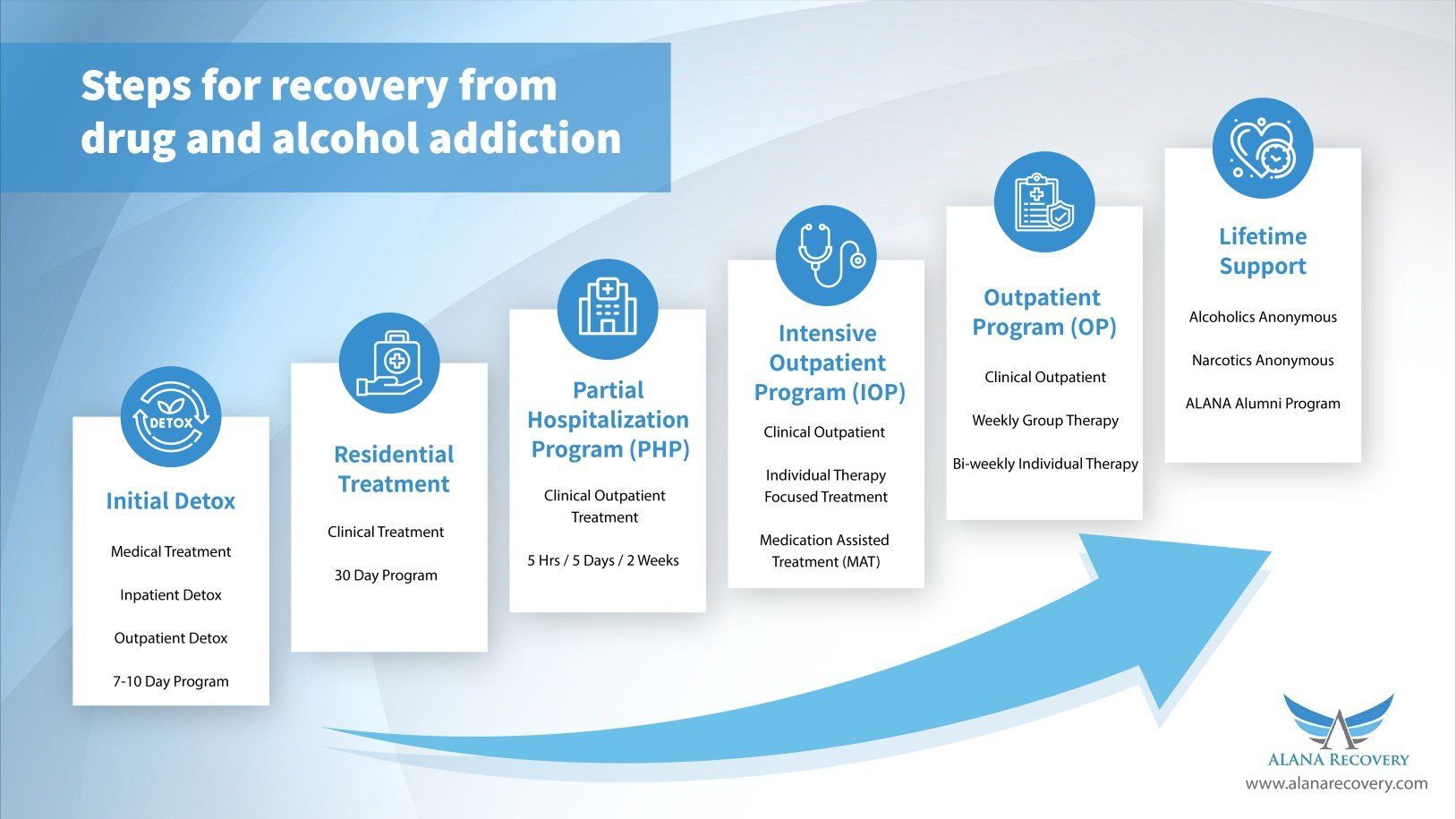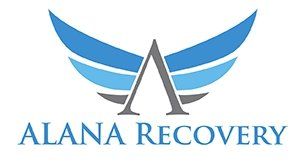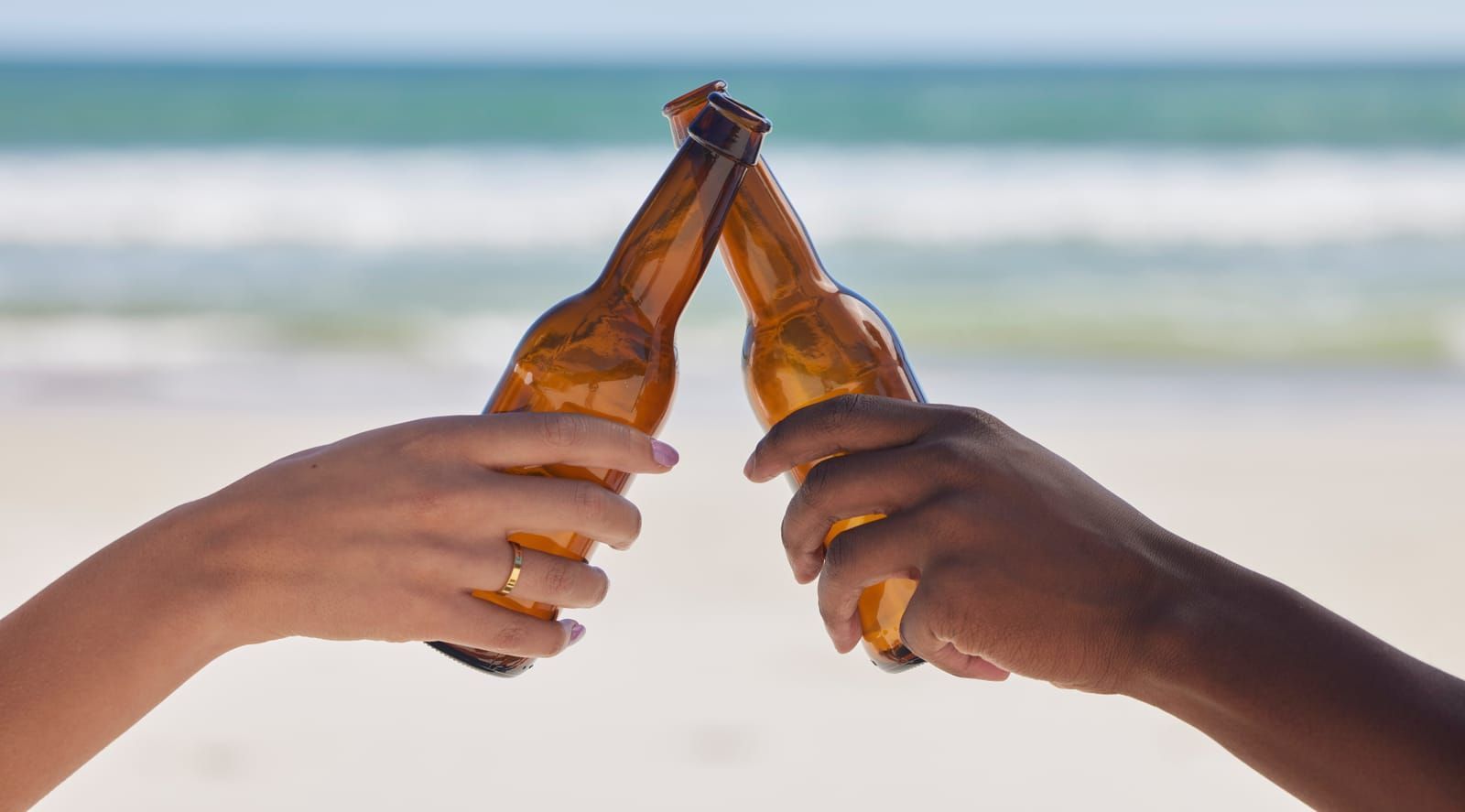When it comes to substance abuse, there are a lot of misconceptions about what treatment works and what doesn't. Some people think that you have to go to a residential rehab facility in order to get help, but that's not the whole story. Intensive Outpatient Programs, or IOPs, can be just as effective as residential rehab but they are not a replacement for detox. In this blog post, we will discuss how intensive outpatient therapy fits into addiction recovery and how it can help those struggling with addiction and trauma.
Do Intensive Outpatient Programs For Drug Abuse Work?
Intensive Outpatient Programs (IOP) are a great option for those who want to get help for their addiction but don't want to leave their home or work. IOPs provide a structured and safe environment with support systems for intensive therapy and recovery, and they are a vital step on the road to recovery from substance abuse and addiction.
Many people find that intensive outpatient therapy is the right fit for them, and it can be a great way to overcome addiction and trauma but it isn't the first step in effective treatment. Check out our roadmap to recovery which details the chronological order of recommended treatments below:

If you or someone you know is struggling with addiction, consider an intensive outpatient program. It is a necessary step on the road to recovery.
What Is The Difference Between IOP and Detox?
Inpatient detox means that you have to stay in a hospital or special facility and participate in inpatient care while you get clean. Intensive outpatient recovery means that you can go home and keep living your life while you get help. You might go to intensive outpatient therapy a few times a week for group and individual sessions. You might also have family therapy or other types of support.
IOPs can be just as effective as inpatient detox and rehab when it comes to overcoming addiction. It all depends on what you need and what will work best for you. If you're not sure if intensive outpatient therapy is right for you, talk to your doctor or a professional in the addiction recovery field. They can help you figure out what's best for your situation.
If you or someone you know is struggling with addiction, don't hesitate to reach out for help. There are many resources available to you, and treatment options like intensive outpatient therapy can make a big difference in your recovery journey.
There are a few key differences between intensive outpatient treatment programs and detox. The most obvious difference is that you are in a supervised but not restrictive home environment during IOP, while you must stay in a hospital or other facility under constant and direct medical supervision during inpatient detox. This can be a major advantage for some people, as it allows them to continue working or attending school while they receive treatment. It also means that they have the support of family and friends throughout the process.
IOPs involve more detailed therapy and counseling than detox, which can help people in recovery discover and address the root cause of their addiction and their associated triggers. Often underlying mental health issues that contribute to their addictive behaviors are identified during IOP which if left undiagnosed can hinder recovery.
Detox:
- Detox is a more focused, short-term intervention that helps people through the immediate physical symptoms of withdrawal. This is required before enrolling in an Intensive Outpatient Program.
- Inpatient detox means that you have to stay in a hospital or special facility while you get clean.
IOP:
- IOP programs provide effective treatment for substance use disorders and co-occurring mental health disorders.
- IOP is more comprehensive than detox. Individual and group therapy, support, and medication management are cornerstones of an effective IOP.
- IOP typically lasts for 90 days or more, while inpatient detox generally lasts for just a few days or a few weeks.
Another key difference is the length of time required for each program's treatment plan. Detox typically lasts for a week or two, while IOPs can last for several months. This allows people in IOPs to work on long-term goals and make lasting changes in their lives while experiencing and dealing with behavioral triggers head-on as they arise.
Many IOPs are synonymous with 12-step programs. Many 12-step programs are successful and effective but are often misjudged or avoided because of religious or spiritual perceptions. ALANA Recovery Centers IOP is centered around evidence-based treatments but does include many of the 12-step principles. Religion is not part of our curriculum but spiritual healing is an important part of emotional recovery and impulse control therapy.
While ALANA Recovery Centers does not offer inpatient treatment for any level of care we have strong professional and personal bonds with several facilities that comprise our trusted partner network. At ALANA Recovery Centers our utmost concern is the client and providing the absolute best opportunity for recovery possible, even if it isn't at one of our facilities. If you need help putting your addiction to drugs or alcohol behind you then please contact us, we will help in every way that we can.
IOP: What it is and How it Works!
An intensive outpatient program (IOP) is a type of treatment that provides intensive care for people struggling with addiction and some mental health disorders. IOPs typically consist of group and individual therapy sessions, family therapy, Medically Assisted Treatment (MAT), and peer support. These programs are designed to help people recover from addiction and substance abuse dependence while still being able to live at home or in a Sober Living Residence and participate in work, school, family, and social activities.
Intensive Outpatient Therapy
Addiction creates damage to the body, mind, and soul of not only the user but also the people around them. A major part of an effective IOP is a robust therapy program that focuses on the individual and addresses the root causes of their addiction. Cognitive behavioral therapy coupled with group and individual counseling can help those in recovery identify these events and their associated triggers. Family members and friends play an important role in recovery counseling and the development of coping strategies.
If you're not sure if intensive outpatient therapy is right for you or where to find a reputable and experienced IOP, call ALANA Recovery Centers and speak to one of our admissions counselors today.

IOP combined with Medically Assisted Treatment (MAT)
IOP is the essential next step after inpatient and/or outpatient detox and rehab when it comes to overcoming addiction. Some patients still require the administration of medications such as Suboxone and Naltrexone during IOP. IOP combined with Medically Assisted Treatment (MAT) can provide a much higher level of care and support than IOP alone.
Medically Assisted Treatments work by using medications that block your addiction cravings when you attempt to stop taking the drugs that you have become dependent on. The medicines also ease the unpleasant physical symptoms associated with withdrawals from drugs and alcohol. This allows patients in IOP to focus on their learning and growth for recovery without having to worry about withdrawal symptoms or drug cravings.
MAT is an important tool in the fight against addiction, and IOP combined with MAT can be a powerful weapon in the battle for sobriety. If you have questions or if you need assistance finding placement in a Georgia IOP, call ALANA Recovery Centers at 877-752-5262 and speak to one of our admissions counselors today.
Picking The Right Recovery Program
Both IOP and detox help people to stop using drugs or alcohol and begin the journey of recovery. But there are different approaches, and which one is right for you depends on your unique situation and your current treatment needs based on where you are in the continuum of care. If you're not sure which one is right for you, speak to a treatment professional who can help you make the best decision for your needs.
ALANA Recovery Centers IOP is an evidence-based program that focuses on the mental, physical, and emotional contributors to addiction. Our program also includes the administration and management of medications such as suboxone (if required), sober living housing assistance through our network of trusted recovery partners, job placement assistance, and continued support for life through our Alumni program.
If you notice any of these symptoms in yourself or someone you know, it is important to seek help as soon as possible. Drug addiction can be a difficult condition to overcome, but treatment is available and recovery is possible.

Thanks for reading! We hope this article was helpful!
Please feel free to share it with anyone who might benefit from it. If you have any questions about addiction recovery or
addiction treatment options, please don't hesitate to reach out to any of our
Georgia addiction recovery facilities conveniently
located in Kennesaw,
Sandy Springs, or
Sugar Hill.
Don’t try to fight addiction alone – Reach out for help today.
Talk With a Provider Today!
Talk With a Provider Today!
Fighting addiction alone is an almost impossible task. Don't do this alone, call us today to start your road to recovery.





